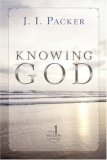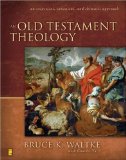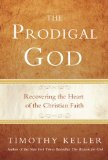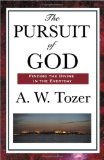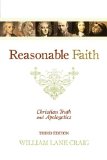If being thought generous is more important than being generous, if gaining a reputation for prayerfulness is more important to us than praying when no one but God is listening, if fasting is something in which we engage only if we can disingenuously talk about it, then these acts of piety become acts of impiety.
The fundamental way to check out how sound we are in each of these areas is to perform these acts so quietly that none but God knows we are doing them.
Posted in Matthew, Sermon on the Mount | Tagged D A Carson, Matthew 6, Sermon on the Mount | 2 Comments »
While many of us are familiar with the stories contained in the first 11 chapters of Genesis, many of us may miss that a main goal of these chapters, particularly 3-11, is to show the spread of sin and its consequences from the Garden of Eden to the nations of the world. So while we can often retell the stories of Adam & Eve’s sin, Cain murdering Abel, Noah and the ark and the Tower of Babel, we might not know how they all fit together into a cohesive unit, setting the stage for what follows.
Sin and evil spread. It spreads quickly, with the acceptance, and even the celebration, of evil happening soon after the Garden of Eden (see here on Genesis 4). Adam’s legacy of death is recorded in chapter 5, while the story of the flood (6-9) is not a cute bedtime tale for children but an account of punishment as a result of the unrelenting evil in the hearts of people. After that, while we see the spread of Noah’s descendants into the nations (Gen 10), we see it’s also partially a result of their sin in trying to ‘make a name for themselves’ (Gen 11).
There is a dark cloud that hovers over the first 11 chapters. The call to be fruitful and multiply is partially fulfilled by the end of chapter 11, but evil, sin and death have multiplied with it. Given the severity of God’s response to Adam and Eve’s sin in Genesis 3, this shouldn’t be a surprise.
But there are signs of hope sprinkled throughout these chapters, and I want to call attention to them. I’ll organize these in reference to Noah (Pre-Noah, Noah, Post-Noah), mainly because the Noah narrative takes up the largest amount of space in these chapters and has quite a few promises of God’s salvation despite the harsh judgment depicted.
Pre-Noah
The biggest promise in these chapters is, of course, regarding the seed/offspring of the woman. If we keep this in mind while we read the following chapters, indeed the rest of the Bible, we’ll be looking for this ‘seed.’
- “And I will put enmity between you [the serpent] and the woman, and between your offspring and hers; he will crush your head and you will strike his heel.” (3:15)
Even in chapter 4, immediately following the fall in the garden and the expulsion from Eden, we see that God still honors offerings given to him.
- “The Lord looked with favor on Abel and his offering.” (4:4b)
Instead of God wiping Cain from the face of the earth after his horrific crime, God still protects the murderer, showing undeserved grace toward him.
- “But the Lord said to him, ‘Not so; anyone who kills Cain will suffer vengeance seven times over.’ Then the Lord put a mark on Cain so that no one who found him would kill him.” (4:15)
And even after the reference to the murder-celebrating Lamech, the Bible still notes,
- “At that time people began to call on the name of the Lord.” (4:26)
In chapter 5 we find the genealogy, which not only gives us a record of Adam’s descendants all the way to Noah, but shows us the reality of death in a world designed to know nothing of it. But in the middle of it, there’s this guy:
- “Enoch walked faithfully with God; then he was no more, because God took him away.” (5:24)
And at the end of the genealogy, there’s a quick break that links us to the subsequent story and back to chapter 3:
- “He [Lamech, not the same from chapter 4] named him Noah and said, ‘He will comfort us in the labor and painful toil of our hands caused by the ground the Lord has cursed.'” (5:29)
Noah
Noah’s appearance- and expression of hope at his birth- bridges us to the flood story, along with the salvation of Noah and his family. Noah is a bright light of hope in the midst of an evil world that rejects God.
- “But Noah found favor in the eyes of the Lord.” (6:8)
- “Noah was a righteous man, blameless among the people of his time, and he walked faithfully with God.” (6:9b)
Noah’s obedience is specifically highlighted as God commanded him to build an ark.
- “Noah did everything just as God commanded him.” (6:22; see also 7:5)
And in the middle of the flood narrative is this little gem, highlighting God’s grace in the midst of judgment.
- “But God remembered Noah…” (8:1)
After Noah makes an offering to the Lord, God promises:
- “Never again will I curse the ground because of humans… and never again will I destroy all living creatures.” (8:21)
The narrative also highlights God establishing a covenant once again (as promised before the flood in 6:18), as God says,
- “I now establish my covenant with you, and your descendants after you.” (9:8)
- And he set the “rainbow in the clouds… whenever the rainbow appears in the clouds, I will see it and remember the everlasting covenant between God and all living creatures of every kind on the earth…” (9:12-17).
So in the midst of the spread of sin, and the judgment of the flood, Noah and his family (even despite their own flaws, see chapter 9) stand as a ray of hope for mankind.
Post-Noah
In chapters 10-11, the only obviously positive statement is a somewhat off-handed remark about Nimrod:
- “He was a mighty hunter before the Lord…” (10:9)
But, the end of chapter 11 leads us up to Abram. While there’s not necessarily any sign of this being a positive turn of events up to this juncture, chapter 12 clearly functions as a turning point in the narrative: While the descendants of Noah have spread throughout the nations, and brought their evil inclinations with them, God has a plan to bless them all. After all, Abram is the one to whom God ‘announced the gospel beforehand’ (Galatians 3:8). But even before Abraham, there were rays of hope in the midst of darkness, teaching us that even though he kicked them out of Eden, God did not abandon his people in their sin and self-destruction.
Posted in Genesis | Tagged Abraham, Genesis, Noah, sin | Leave a Comment »
I recently preached a sermon as part of our series on advent last week. The audio is available here. This was special for me because it marks the first time I’ve officiated (right term?) the Lord’s Supper in our church. The audio is special because you get to hear my extremely talented friends sing a favorite song of mine at the end.
Posted in 1 John, Sermons | Tagged Advent, Christmas, love | Leave a Comment »
In a few verses the writer is able to convey a sense of the catastrophic descent of the human race from covering up killing to boasting in bloodletting. Cain’s nonchalant words and his great-great grandson’s boast frame this genealogy and mark its spirit and its descent into a moral and spiritual abyss. The irresponsible ‘Am I my brother’s keeper?’ attempts to deny murder (Gen. 4:9); ‘I have killed a man for wounding me’ glories in it (Gen. 4:23). This is certainly not the dominion intended for humanity in Genesis 1-2.
Stephen Dempster, Dominion and Dynasty, pages 70-71
Posted in Genesis | Tagged Genesis 4, OT Theology, sin, Stephen Dempster | 3 Comments »
Moreover, the final compilers of the biblical text ensured that the text was to be understood as a unity. There are not only major groupings of books, but editorial ‘splices’ that join major groupings of books with each other. Therefore, both theological and literary points are made simultaneously. For example, at the beginning of each of the major sections of the Hebrew Bible there is an extraordinary emphasis on the word of God. The Bible begins with the word of God creating reality, and its first work is to create light, thus establishing the rhythm of the day and night (Gen. 1:3-5). The text proceeds to describe the first human beings and their residence in the garden of Eden, which is maintained only by organizing their lives around the word of God (Gen. 2:4-25). Joshua, which commences the second major grouping of biblical books, the Prophets, contains an exhortation requiring the new Israelite leader to meditate day and night on the Torah to ensure the success of Israel’s conquest of Canaan, and so be enabled to enjoy the fruits of the new Eden (Josh. 1:8-9). Near the beginning of the third and last grouping of books, the Writings, Israelites are urged to meditate on the Torah day and night in order to find success and become like trees planted in a garden alongside streams of gushing water (Ps. 1:2-3). By these links, this writing is conceptually distinguished from other writings, since it is the Word of God. But it is also distinguished literarily, since an implicit unity has been marked explicitly: it is also the Word of God.
Stephen G. Dempster, Dominion and Dynasty: A Theology of the Hebrew Bible, pages 32-33 (italics original)
Posted in Old Testament | Tagged narrative, OT Theology, Stephen Dempster | Leave a Comment »
The two images above are billboards recently released by American Atheists. Should these billboards be considered persecution? I believe that they should. Denigrating one’s beliefs – especially in the callow, sensationalistic, straw-man manner shown on these billboards – counts as persecution, in my book. Granted, these billboards are not the equivalent of beating somebody and sending them prison, but are they not just a lower rung on the same ladder? It is promoting an environment where Mormons and Christians are ridiculed for their “unreasonable” beliefs. What would happen if these billboards really caught on, and the majority of society started treating Mormons and Christians with the same petulant contempt?
Hence a series of ironies: American Atheists are against people being persecuted for their beliefs (e.g., “Action Alert” at the bottom of their home page), yet they persecute people for their beliefs. The billboards decry Christianity for promoting hate, yet they promote hate. The billboards violate American Atheists own aims and principles.
It seems that even atheists have their share of people who break with their own by-laws. Christians have their share of people who advocate hatred, despite the fact that the book they purport to follow supports no such agenda. One of American Atheists self-stated aims is to “collect and disseminate information, data, and literature on all religions and promote a more thorough understanding of them,” a task at which these billboards miserably fail.
I believe (hope?) that these billboards do not represent the majority of atheists in America. I’m hoping this type of rhetoric will be increasingly marginalized. From the responses I’ve read thus far on these billboards, it seems that most people are dismissing them, as they should. Conversely, I hope that atheists understand that churches like Westboro Baptist Church do not represent Christianity.
Once again, it’s not organized religion that is the enemy, nor is it organized non-religion, nor theism, nor atheism. It’s people. We’re all hypocrites. We’re all inconsistent. We’re all hateful at some level. We are the great problem with the world, and we need a great savior. I maintain that reason is not this great savior, and I believe that history abundantly supports my claim. We cannot save ourselves. Only God can save us from ourselves, each other, and the mess we’ve made of this world. Through Christ and His Spirit, that’s exactly what He has done, is doing, and will do.
Posted in Christianity and Culture, Uncategorized | Tagged atheism, Mormonism | 7 Comments »
A prayerless life is one of practical atheism.
Gordon Fee, Paul, the Spirit and the People of God, p149
Posted in prayer | Tagged Gordon Fee, prayer | 1 Comment »
Thanks again to Connie at Crossway for a review copy of this book.
This part of my review of Hamilton’s book, God’s Glory in Salvation through Judgment, will deal directly with the thesis of the book (unlike Part 1, which dealt with other matters in the book). Hamilton’s thesis is found in the title itself: that the central theological theme of the Bible is God’s glory in salvation through judgment. Every other theme (God’s love, holiness, etc) “flow from, exposit, and feed back into the glory of God in salvation through judgment” (p56).
 Hamilton is making a big claim here. As he points out, some have tried to make a similar claim, while others despair of finding a single center. But Hamilton isn’t shy about making his point (and even, somewhat audaciously, outright attempting to do for biblical theology “what Kevin Vanhoozer has done for hermeneutics and David Wells has done for evangelical theology” [p38]), so I won’t be shy in evaluating his attempt to defend his thesis.
Hamilton is making a big claim here. As he points out, some have tried to make a similar claim, while others despair of finding a single center. But Hamilton isn’t shy about making his point (and even, somewhat audaciously, outright attempting to do for biblical theology “what Kevin Vanhoozer has done for hermeneutics and David Wells has done for evangelical theology” [p38]), so I won’t be shy in evaluating his attempt to defend his thesis.
Hamilton’s basic approach is to move book by book, arguing that the underlying theological center of each book is ‘God’s glory in salvation through judgment.’ He does this by means of looking at smaller units and stories within each biblical book.
Sometimes it works…
There are certain books that fit Hamilton’s thesis like a glove. The first book that came to mind when I heard Hamilton’s thesis (even before reading the book) was Exodus. God judges Pharaoh & Egypt and saves Israel, and does so that Moses/Israel/Egytians/Pharoah will know that he is Yahweh (see chart on p94). It would be hard to argue against Hamilton in this case. Another biblical book amiable to Hamilton’s thesis is Revelation. As in Exodus, God saves his people by pouring judgment on their enemy (Babylon) ultimately resulting in God being glorified for who he is. Again, not too hard to see the point.
On the whole, Hamilton tends to be strongest in his treatment of the prophetical books, where salvation and judgment are often seen side-by-side and God’s glory is a central theme. Although there are some questions regarding the definitions of ‘salvation’ and ‘judgment’ in these sections, as well as the exact nature of their relationship to each other, Hamilton makes a strong case for his thesis in the prophets.
…and sometimes it doesn’t
As strong as he is in some areas, Hamilton is particularly weak in others. I came away completely unconvinced that ‘God’s glory in salvation through judgment’ is the central (or even a central) theme in the epistles. More on this in a bit, but suffice to say he has to assume his thesis too often in this section to make it work.
Because Hamilton insists on seeing his thesis everywhere, he has some painfully forced interpretations. This can be seen in some treatments of smaller units of Scripture. In dealing with the story of Abraham’s near sacrifice of his son Isaac, Hamilton claims “Isaac is saved through the judgment that falls on the ram” (p88). But what exactly was the judgment for? Did anyone do anything wrong? What is being judged? Does all sacrifice have to happen because of judgment?
Hamilton runs into problems on a larger scale, too. In Ecclesiastes the judgment found is “the judgment of discontentment and unrealistic expectations” (p317). Really? I’m not entirely sure what that phrase means. In Ruth, Hamilton has to read judgment into it on such a deep level that one has to question whether it can rightly be read as the ‘theological center.’ Can something be the center if it’s never mentioned or alluded to?
In his treatment of Jonah I honestly had to wonder if we were reading the same book. God kills the plant that provided shade for Jonah, then rebukes Jonah for getting mad about it (Jonah 4:5-11). Hamilton writes, “Jonah was brought through the judgment of his attitude to salvation. This salvation takes the form of rejoicing in Yahweh’s inclination to relent and show mercy” (p247). Umm, who exactly is rejoicing and what verses record that rejoicing? Would anyone have read Jonah thought of this unless they were importing the theme and insisted on seeing it?
The truth is Hamilton’s thesis doesn’t fit most of the books of the Bible. You may be able to argue it’s there, but arguing the centrality of it is something he doesn’t pull off.
The problem of definitions
What I just touched on is a significant problem for Hamilton’s thesis: how exactly are salvation and judgment defined? Oddly enough, he never really offers a definition; the result is that their usage is at times so broad it cheapens the ‘real thing.’
Sometimes salvation is obvious- God rescues his people from enemies, sickness, etc. But sometimes Hamilton really needs to step back and explain what exactly he means by ‘salvation.’ What does it mean for Paul to lead his readers unto salvation when they are already saved? For example, at the end of his (very short) discussion on 1 Corinthians 15, Hamilton writes, Paul “judges and condemns false notions about the resurrection and through that seeks to deliver the Corinthians for the glory of God” (p461). But deliver them from what, exactly? What does it mean for readers who are already saved (in some sense) to be lead to salvation by having judgment cast upon false theology?
I’m not saying that Hamilton is necessarily wrong here, but he never explains what he means. Perhaps he thinks the answer is so obvious that it doesn’t need an explanation, but, I’m sorry to say, he’d be wrong.
The same point can be made for the concept of ‘judgment.’ There are obvious cases (previously mentioned), and not so obvious ones (note the aforementioned ‘judgment of discontentment’).
So what happens is that the definitions of both words seem flat. If something good happens- rescued in battle, healed from sickness, falling in love- it’s salvation. If something bad happens- going into exile, overcoming sin, or wondering if your life is going anywhere- that’s judgment. Methinks someone lacks a bit of nuance…
None of this is simply an academic critique or a debate over fine points of theology. I have a deeper reason for my frustration regarding this. I agree that salvation comes in many forms in the Bible; it is, as they say, a many splendored thing. My problem is this: Hamilton never weaves the various strands together to demonstrate the beautiful tapestry that the Bible itself presents to us. To change the metaphor, he’s too busy strumming his one chord- an important one, no doubt- that he can’t allow the reader to hear the symphony.
Contrast this, for example, with Christopher Wright’s Salvation Belongs to Our God (reviewed here). Now, I have disagreements with Wright’s book; at least as many as I do with Hamilton’s. But Wright does something that Hamilton doesn’t. He connects the themes and shows the reader how it all fits together. All throughout his book I was blown away at how brilliant God’s plan of salvation has been shown throughout history, and will be right up until the end. In 1/3 of the space, I learned far more about what the Bible actually says about salvation than I did reading Hamilton’s book.
Can the Center Hold… Methodologically?
Truth be told, I think Hamilton’s project- proving that salvation through judgment to the glory of God is the central theological theme of the Bible- is pretty much doomed from the start. Because what he cannot do is find a method that will actually back up what he says he’s going to do.
Hamilton has to assume his thesis in too many places to prove its centrality. This is most clearly seen in his treatment of the epistles. Hamilton’s method is basically this: show how each NT epistle fits with the thesis, then say something like “see, this is the central theological theme of the book.”
But all he can really do- and I would argue this is true of any one proposed center- is show how it fits, but not how it is central. For example, let’s say I wrote a book arguing that creation/new creation is the central theological theme of the Bible. I can easily demonstrate (in fact, far more easily than Hamilton can with his thesis) that Paul, John and the other NT writers assumed that God’s new creation is primarily seen in his people, so when they wrote their epistles they expect that Christian communities live out of the life of a new creation (in their ethics, in their preaching, in their ministry, etc). So even if not explicitly stated, ‘new creation’ is the controlling theme underlying everything that is said.
What I would be doing in this hypothetical book is exactly what Hamilton is doing; that is, showing how my thesis sheds light on aspects of the Bible. But what I’m not actually doing is showing that it’s central. It’s there, it’s important and it is a basic assumption of the biblical writers. But the central theme? I can’t really even begin to think of a method that could carry that weight (unless, of course, your central theme is ‘God’).
Concluding Thoughts
I realize it seems I’m being hard on Hamilton. The truth is, as I’ve stated, he sets the bar high for himself with his rather large claims. He claims to be demonstrating the single most central theme of the entire Bible. He doesn’t hedge his bets much, an admirable trait. If he had simply said ‘here’s an important, but often overlooked, theme of the Bible’ this review would have been about ¼ of its size.
I truly did enjoy this book. I learned a lot, was challenged in some areas, and confused in others. I feel sorry for whoever might borrow this book from me, as there are now markings all over the place. This is a sign of a good book, one I’m glad I read.
So I’m not convinced his thesis is correct, but I am convinced that Hamilton is on to something important. I happily recommend the book to anyone who would wish to read it and learn more about our glorious God.
Posted in book review | Tagged book review, God's Glory in Salvation through Judgment, Jim Hamilton, judgment, salvation | 5 Comments »
Ethics for Paul, therefore, is ultimately a theological issue pure and simple- that is, an issue related to the known character of God. Everything has to do with God, and what God is about in Christ and the Spirit. Thus: (1) the purpose (or basis) of Christian ethics is the glory of God (1 Cor 10:31); (2) the pattern for such ethics is the Son of God, Christ himself (1 Cor 4:16-17; 11:1; Eph 4:20), into whose likeness we were predestined to be transformed (Rom 8:29); (3) the principle is love, precisely because love is at the essence of who God is; (4) and the power is the Spirit, the Spirit of God.
Gordon Fee, Paul, the Spirit and the People of God, p106
Posted in Ethics, Holy Spirit | Tagged ethics, Gordon Fee, Holy Spirit | Leave a Comment »





